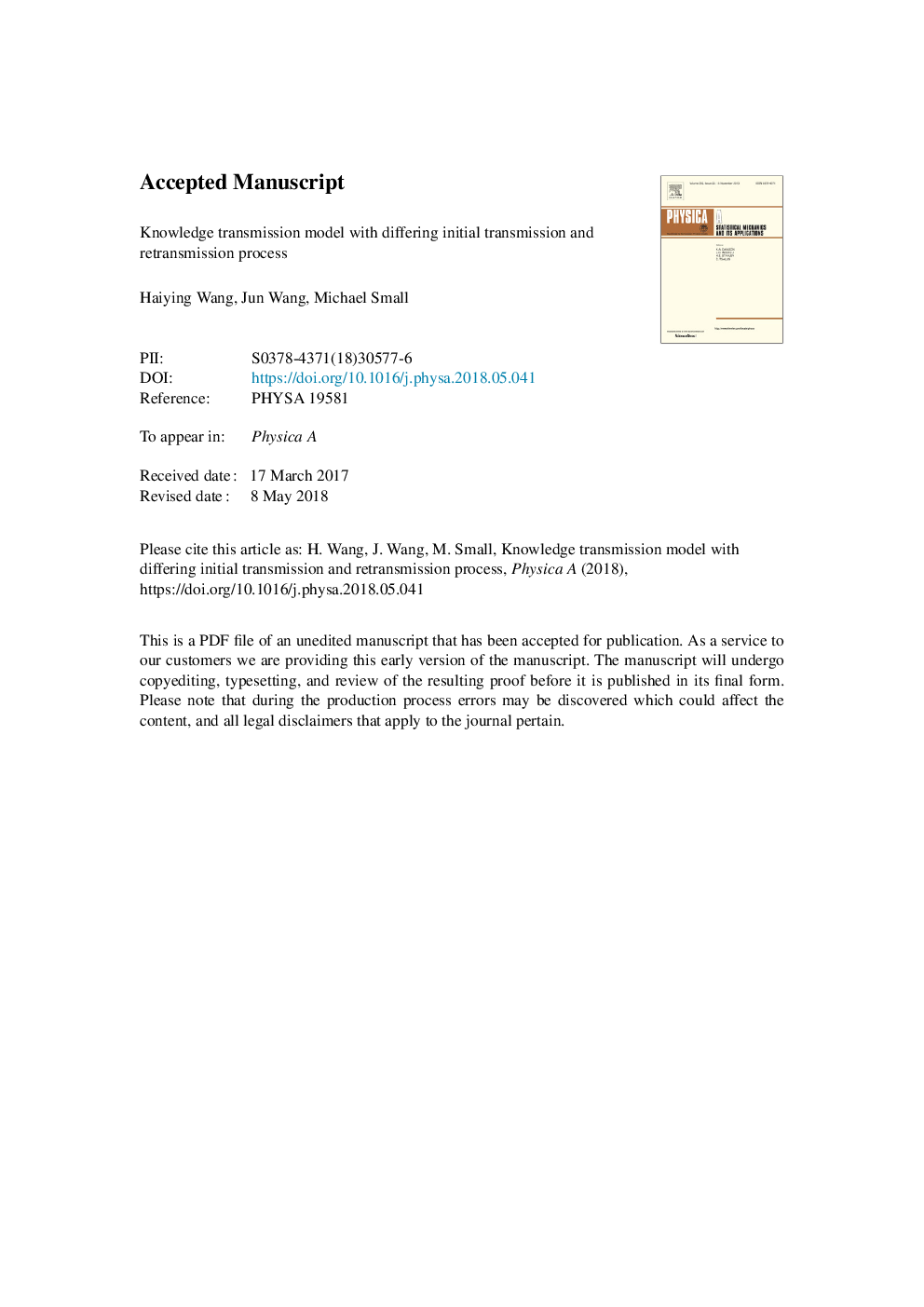| Article ID | Journal | Published Year | Pages | File Type |
|---|---|---|---|---|
| 7374824 | Physica A: Statistical Mechanics and its Applications | 2018 | 23 Pages |
Abstract
Knowledge transmission is a cyclic dynamic diffusion process. The rate of acceptance of knowledge differs upon whether or not the recipient has previously held the knowledge. In this paper, the knowledge transmission process is divided into an initial and a retransmission procedure, each with its own transmission and self-learning parameters. Based on epidemic spreading model, we propose a naive-evangelical-agnostic (VEA) knowledge transmission model and derive mean-field equations to describe the dynamics of knowledge transmission in homogeneous networks. Theoretical analysis identifies a criterion for the persistence of knowledge, i.e., the reproduction number R0 depends on the minor effective parameters between the initial and retransmission process. Moreover, the final size of evangelical individuals is only related to retransmission process parameters. Numerical simulations validate the theoretical analysis. Furthermore, the simulations indicate that increasing the initial transmission parameters, including first transmission and self-learning rates of naive individuals, can accelerate the velocity of knowledge transmission efficiently but have no effect on the final size of evangelical individuals. In contrast, the retransmission parameters, including retransmission and self-learning rates of agnostic individuals, have a significant effect on the rate of knowledge transmission, i.e., the larger parameters the greater final density of evangelical individuals.
Related Topics
Physical Sciences and Engineering
Mathematics
Mathematical Physics
Authors
Haiying Wang, Jun Wang, Michael Small,
